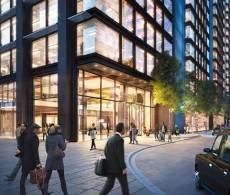January 14, 2015
Bosses failing to tackle workplace bullying say staff
 The majority (91 percent) of staff polled on bullying at work say their employers do not deal adequately with the problem and over three quarters (78 percent) are reluctant to complain for fear of their job. According to charity Family Lives, the anxiety associated with workplace bullying greatly affects emotional health and wellbeing. Of the 1,500 workers it polled, 73 percent said the bullying was verbal, including threats, whereas 60 percent felt the bullying was social, including being excluded, ignored and isolated. Two thirds (66 percent) of respondents witnessed bullying at work with 43 percent stating they were bullied by their line manager, 38 percent bullied by a colleague and 20 percent bullied by SMT or CEO.
The majority (91 percent) of staff polled on bullying at work say their employers do not deal adequately with the problem and over three quarters (78 percent) are reluctant to complain for fear of their job. According to charity Family Lives, the anxiety associated with workplace bullying greatly affects emotional health and wellbeing. Of the 1,500 workers it polled, 73 percent said the bullying was verbal, including threats, whereas 60 percent felt the bullying was social, including being excluded, ignored and isolated. Two thirds (66 percent) of respondents witnessed bullying at work with 43 percent stating they were bullied by their line manager, 38 percent bullied by a colleague and 20 percent bullied by SMT or CEO.

























